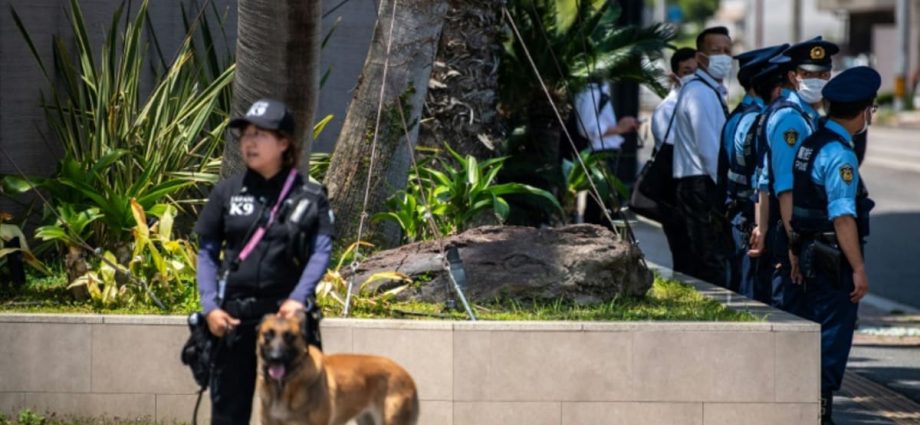
In Hiroshima, signs across the city and in hotels remind locals and tourists alike that the summit will cause disruption, including the closure of streets and access to the island of Miyajima, which leaders are expected to visit.
Dozens of schools and other institutions have simply opted to close during the summit, according to local media.
The measures are likely to be closely scrutinised less than a year after a gunman assassinated former prime minister Abe as he campaigned in the city of Nara.
Then in April, a man hurled an explosive device towards Prime Minister Fumio Kishida shortly before he was due to deliver a campaign speech in the city of Wakayama.
He escaped unharmed, but the fact that an assailant was able to throw the device at such close range so soon after the Abe murder prompted renewed criticism of security arrangements in Japan.
The head of Japan’s National Police Agency, and the local police chief, resigned in the wake of Abe’s assassination after an investigation confirmed “shortcomings” in the security for the former leader.
The investigation slammed a system under which local police were given responsibility for the security of visiting senior officials and argued that with better measures, it was “highly probable” the attack could have been prevented.
Kishida has instructed police to step up security around the G7 “so that guests can visit Japan with peace of mind”.
Leaders from G7 members Japan, the United States, Canada, Britain, France, Germany, Italy and the European Union will be joined by invitees including Brazilian President Luiz Inacio Lula da Silva and Indian Prime Minister Narendra Modi.

